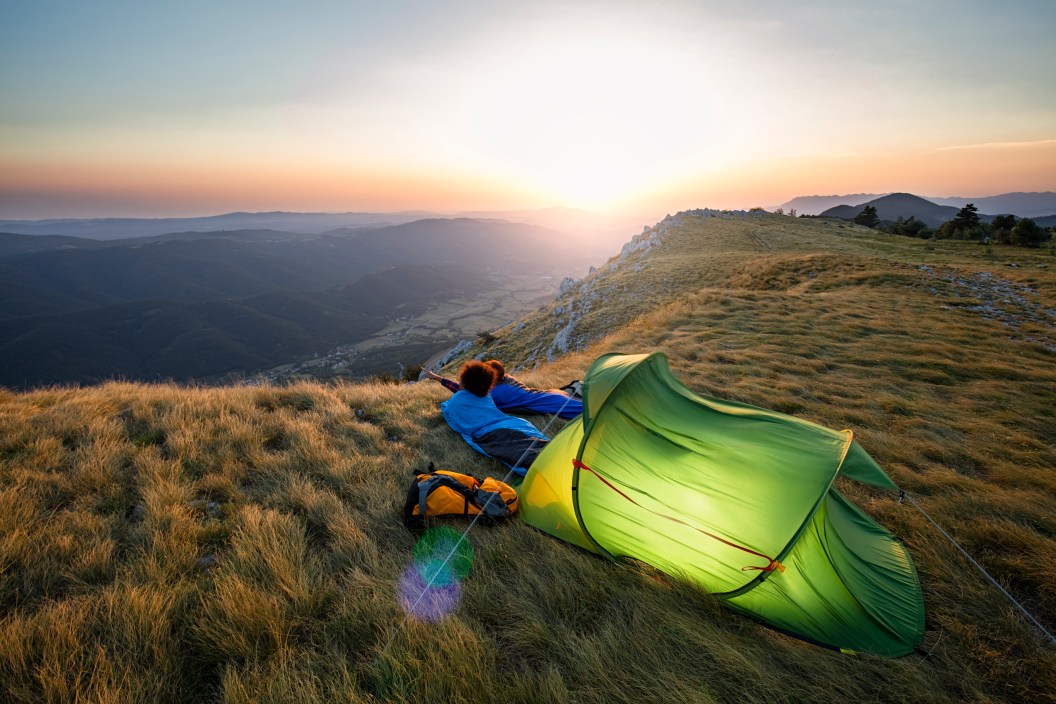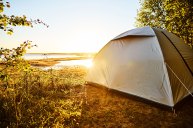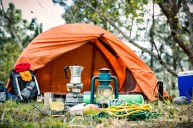There are few things that can ruin a camping trip, but getting a bad night's sleep is certainly one of them. Sometimes, it's out of your control, like nights when the full moon is too bright or someone three campsites down is deepening their relationship with tequila. Maybe a twig snaps in the distance or your inflatable sleeping pad springs a leak and deflates.
However, on a perfect evening out in the wild, there is no better feeling than snuggling into a warm sleeping bag and staring up through the tent's mesh ceiling to the glittering night sky.
Though I cannot dim the moon or slip a sedative to annoying neighbors for you, I can say that when I adhere to the below tips, my camping experience is wildly transformed for the better. In fact, some of the worst nights I've had while camping stem from directly ignoring this advice! So, in addition to packing your bags and prepping your food, study these tricks for your next camping trip.
READ MORE: 5 Great Tips to Sleep Well While Camping
1. Don't Waste Daylight or Energy
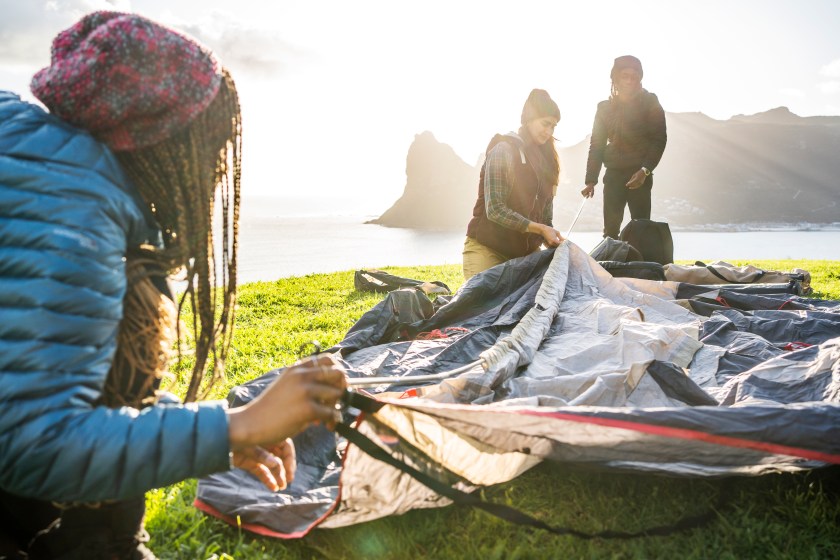
NickyLloyd/Getty Images
This might be the best piece of advice overall when camping or backpacking: Make sure you have enough daylight and energy to set up your camp.
Simple safety (for you, wildlife, and the environment) might be ignored if you're running out of time or are too exhausted to care. So might good decision making.
Remember, Leave No Trace states that "fatigue, bad weather, and late departure times are not acceptable excuses for choosing poor or fragile campsites."
2. Stay Away From Shores
Unless otherwise stated by the land managers, campsites should be at least 200 feet (think 70 steps) from existing water sources.
This rule is to help protect wildlife, who usually venture to water during the night. If campsites are too close, it will deter them from the water they need or potentially force contact between them and you.
3. ...But Not Too Far
Dry camping is when you set up for the night out of reach from a reliable water source. There are times when it's unavoidable to dry camp, but if you can, definitely stay where there is water. Not only will it help you reduce the weight of carrying extra H2O, but it will also allow greater peace of mind when cooking and drinking throughout the night.
Spending a night rationing water leads to dry mouths and uncomfortable dreams of drinking—AKA no restful sleep.
4. Choose Privacy Over a Great View
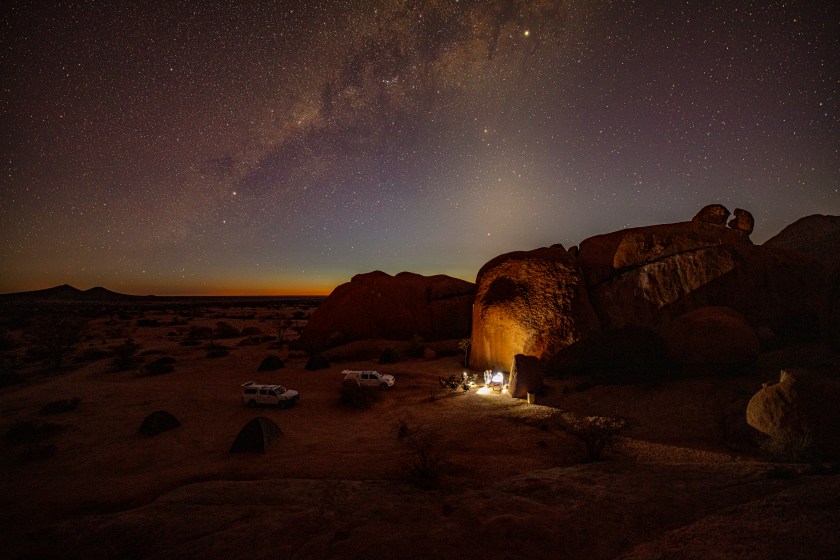
SimonSkafar/Getty Images
A campsite with both is certainly ideal but, in my experience, picking a site that maybe doesn't have the most breathtaking view but does have privacy will lead to a better night.
You can't control others, but you can give yourself space.
A good rule of thumb to follow whenever possible is to be far enough away that fellow campers cannot hear you when speaking at a normal volume. (Personally, I don't even like it when other campers can see my tent from theirs.)
After all, don't we venture into the wilderness for solitude and a quiet connection with nature? Let yourself and your neighbors enjoy that.
5. Don't Forage Your Own Path
It's tempting to pitch a tent on an untouched grassy knoll, but in an effort to minimize erosion over time, you want to seek out campsites that have already been impacted, identified by an obvious lack of vegetation (usually in the shape of a tent-sized circle).
In more remote areas where there is no obvious impact from past campers, Leave No Trace recommends spreading out tents, avoiding repetitive traffic routes, and moving camp every night.
6. Pitch On Durable Surfaces Only
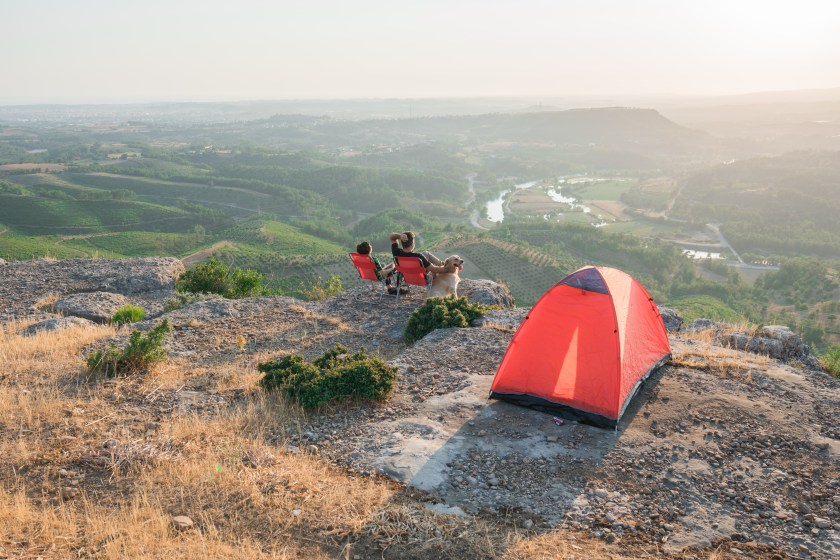
mgstudyo/Getty Images
To minimize damage to the environment over time, camp only on durable surfaces such as rock, sand, gravel, and dry grasses. Similar to staying on trail while hiking, this helps preserve the environment and mitigate impact in high-use areas.
7. Consider Mosquitos
While water-side camps may never be bug-free, there are areas of a lake that attract mosquitoes more than others. Inlets and outlets to lakes, as well as floodplains along stream and river banks, will have higher concentrations of bugs.
Tall grasses serve as protection for bugs and therefore are not preferred sites. And if you can help it, never camp near stagnant water which is a breeding ground for these bloodsuckers.
8. Flat Mat = Restful Night
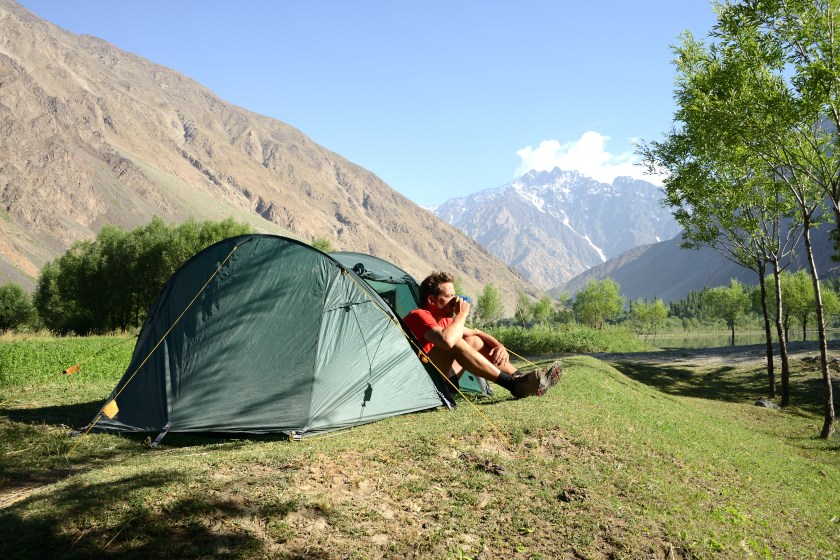
Travel_Nerd/Getty Images
Your instinct will probably tell you that flat surfaces are better for sleeping—and for good reason. Even a slightly tilted landscape can result in rolling, sliding, scrunching, and waking up 20 times throughout the night in a horizontal cross-cross-applesauce formation.
If you're having trouble identifying the slope of a particular campsite, taking a photo of it with your phone's camera might help. Most have a "straighten" editing tool that will auto adjust, showing you a rough degree of the land.
If you have no choice but to pitch a tent on uneven ground (or you didn't realize it until everything was already set up), position your head at the top of the slope to avoid waking up with a blood-pounding headache.
9. Look Up and Listen
Widowmakers are trees or tree limbs that are liable to fall off—yes, the name says everything. That's why it's important to make sure you don't pitch your tent under or within falling distance of a tree or limb that is dead, has partially fallen, or is being supported by another.
Another way to tell is to listen for creaking when breezes roll through. Unstable trees will make a noise like an old barn door blowing open in a horror movie. Don't stay anywhere underneath or downhill of one of these.
10. Follow Fire Regulations
Regardless of how nostalgic a campfire may be, where you camp may not allow it. Some restrictions may be temporary due to weather. Other areas may require permits or not allow fires altogether.
Research the area and the weather (important before any trip, regardless of fire usage), and figure out if where you want to sleep will tolerate fires. If not, choose another site.
Never disregard fire regulations for the vanity of your camp experience. That's literally how wildfires start.
READ MORE: What Boondocking Is and Advice From a Seasoned Camping Duo
